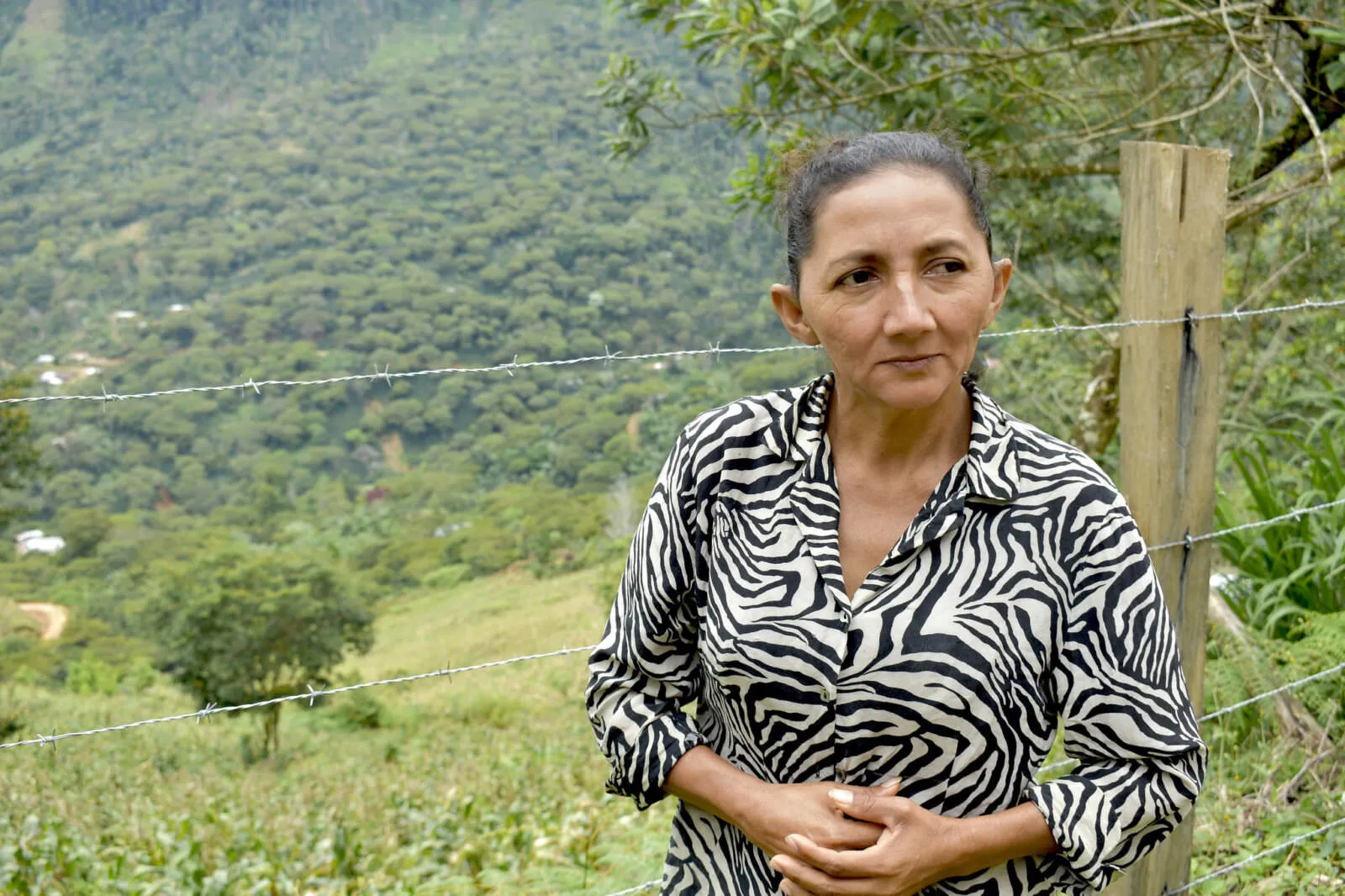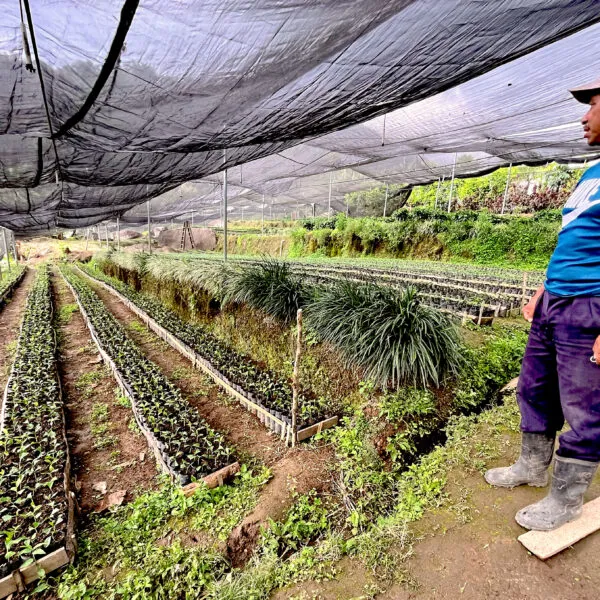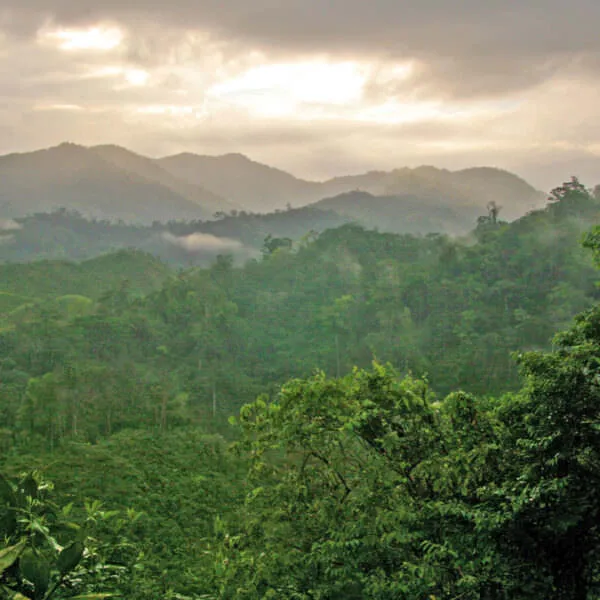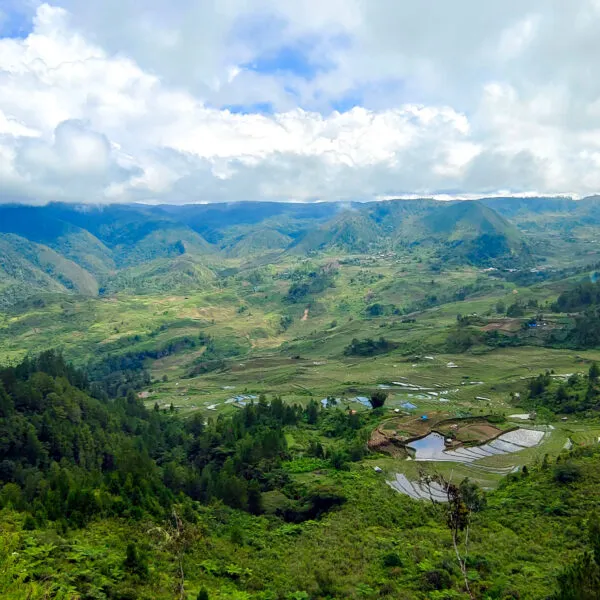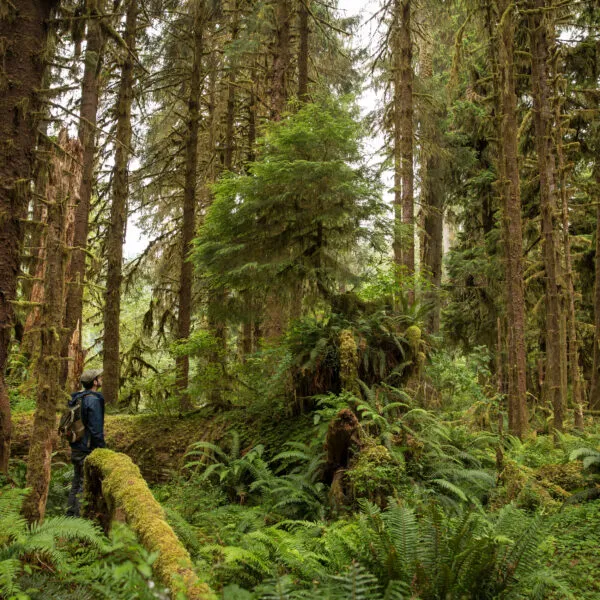Reyna Cristina Castillo, a 49-year-old mother of six, wakes up at 3 am every morning to do her household chores before walking 45 minutes to the coffee farm in El Paraíso, Honduras, where she works alongside her husband and two of her grown children.
“Sometimes I feel like staying in bed longer,” Castillo admits. “But then I thank God for my life, my husband, and my family—and I leave those thoughts behind.”
Many would find it hard to muster gratitude for such long, hard days, but Castillo’s positive attitude can be explained in part by considering what she sees around her: With global coffee prices crashing, and the climate change-related roya fungus decimating coffee crops throughout Latin America, work has been so scarce in this sector that many Hondurans have been forced to migrate. The department of El Paraíso, where Castillo lives, lost a high number of residents to the caravan of asylum-seekers, and a disproportionate number of them were coffee workers.
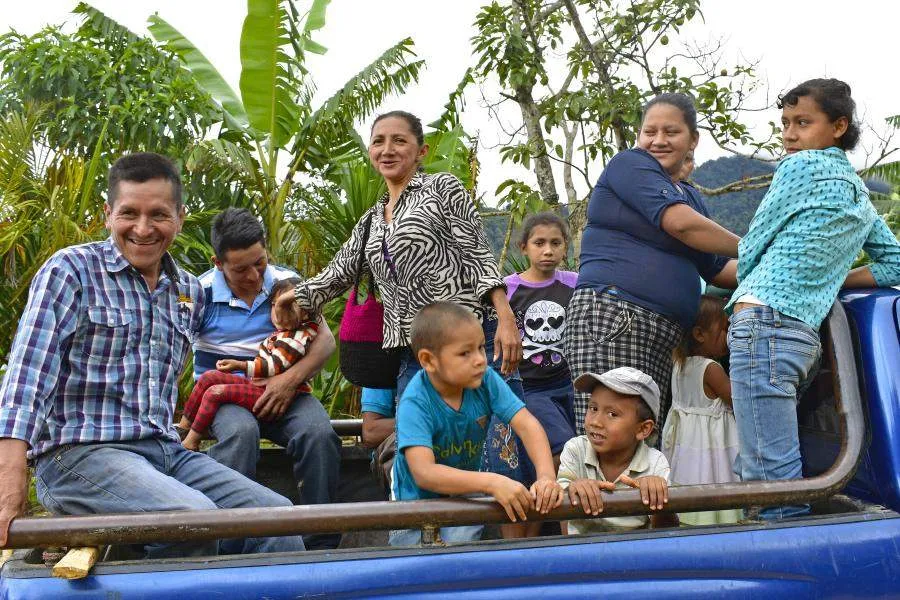
But Castillo and her family work on a farm that has embarked on a path to sustainability: Currently the farm is working on an improvement plan that will allow it to supply beans to a Rainforest Alliance CertifiedTM exporter, a linkage that can help ensure decent prices. The farm also receives technical assistance from Progresa Project to support the its efforts to become environmentally responsible. These are hopeful signs, since sustainable farming methods fortify a farm’s long-term future, as well as better incomes for workers like Castillo.
Knowing all too well the pain of having to leave behind everything you know and cherish makes Castillo doubly appreciative of her job. In 1998, Category-5 Hurricane Mitch made landfall in Honduras, killing 7,000 people in this country alone (the hurricane went on to kill more throughout Central America as well as in Florida). Castillo, who grew up in a family of tailors in the area hardest hit by Mitch, recalls that before the hurricane, “Even my cousins worked with my father. We had two sewing machines and we made a good living.” But Mitch wiped that all out. “Nine of my family members died in the hurricane. We had no house, no place to keep working, no money. People managing aid would not give it to us. They just kept asking for our ID numbers, but we never got anything from them.”
That’s how she ended up in the Santa Elena Azabache community in Danlí, El Paraíso, working in coffee. The man who owns the farm bought it with money made during a stint working in the United States—so he, too, understands the hardship of migration and treats Castillo and her family well. These days Castillo mostly prepares food for the workers in the field, while her husband and two middle children pick berries (her two eldest live on their own, while her little ones are in school). “I always taught my children to work, because I didn’t want them to turn to gangs or drugs,” she said, expressing a real concern in a country with so few legal work opportunities and so much systemic corruption (much of which has its roots in US intervention).
Castillo still dreams about someday owning a sewing machine, so she can return to her calling. “I’d be happy to help my friends with their clothes,” she says wistfully. In the meantime, she continues to see her job as a blessing, because in her view, “Work dignifies us.”
